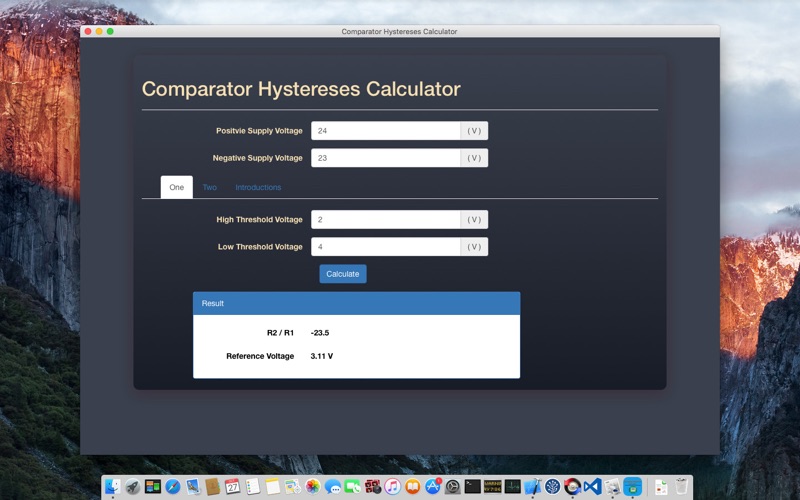
This calculator will compute the resistor ratio R1/R2 and reference voltage for given high and low threshold values for a hystereses curve, or the threshold values given the reference voltage and resistor ratio.
The most commonly know comparator is the LM339 and its various flavors. Rail to rail op-amps can also be used as comparators. The LMV324 is one such op-amp that is affordable, and works well as a comparator.
A comparator is an electronics circuit which compares the voltage of a signal to a voltage reference. If the signals voltage is greater than the reference, the the output of the comparator swings to the top rail, and likewise if it is less than, it swings to the bottom rail. Comparators are useful in converting analog signals into square digital signals.
Hystereses is often employed in comparators, and is useful in eliminated noise and glitches. With hystereses a comparator has two voltage thresholds: a high threshold when the output is low, and a low threshold when the output is high. If the output is currently low, then the input voltage must swing above the high threshold, which is higher than the reference voltage, to make the output swing high. Likewise, when the output is high, the input voltage must swing below the low threshold, to make the output swing to the low rail.
A popular comparator is the LM339 which contains 4 comparators in a 14 pin package. The LM393 contains 2 comparators. The TL331 contains a single comparator.
Hystereses can be designed into a comparator circuit, by inserting a resistor from the output to the positive terminal of the comparator.
Computing the resistor values for a given high and low threshold voltage is a common engineering task when dealing with comparators.
======================================================================
FAQ&&Email: [email protected]


